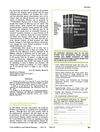Search
for
Sort by
Research
540-570 / 1000+ resultsresearch Effect of Finasteride on Human Testicular Steroidogenesis

research Graham Little-Piccardi-Lassueur Syndrome Associated with Androgen Insensitivity Syndrome (Testicular Feminization)
A woman had both Graham Little-Piccardi-Lassueur syndrome, causing hair loss, and complete androgen insensitivity syndrome, making her genetically male but physically female. This suggests androgens don't affect the hair loss condition.
research Isosexual Precocious Pseudopuberty Secondary to a Testosterone-Secreting Leydig Cell Testicular Tumor: True Isosexual Development Early After Surgery
A boy's early puberty caused by a testicular tumor returned to normal after surgery.

research Timing of Puberty in Relation to Semen Characteristics, Testicular Volume, and Reproductive Hormones: A Cohort Study
Men who went through puberty later had lower sperm counts and altered hormone levels, possibly affecting fertility.
research Phosphodiesterase Inhibitors Used in Androgenic Alopecia as a Possible Risk Factor for Testicular Tumor

research Corticotropin Releasing Factor-1 Receptor Antagonism Associated With Favorable Outcomes of Male Reproductive Health Biochemical Parameters
Blocking CRF1 receptors improved male hormone levels and reduced testicular tumor size in men with a specific adrenal condition.

research Sertolioma in a Canadian Husky: Relationship Between Tumor, Hormones, Neurons, and Skin
Removing a testicular tumor in a dog reduced its aggressive behavior and skin problems.

research Urological Oncology: Testis Cancer and Advances in Oncological Therapy
Finasteride lowers PSA levels in men, certain factors increase testicular cancer risk, and current guidelines for penile cancer may lead to unnecessary surgeries.

research Use of Mannitol Diuresis to Reduce Cisplatin Nephrotoxicity
Mannitol diuresis allows higher doses of cis-platinum for testicular cancer treatment without increasing kidney damage.

research Finasteride-Related Leydig Cell Tumor: Report of a Case and Literature Review
Finasteride use may be linked to rare testicular tumor, but more research needed.
research Metastatic Embryonal Cell Carcinoma with High Testosterone and Absence of Secondary Sexual Characteristics
Treatment restored normal sexual characteristics and blood condition in a patient with testicular cancer.

research Potential Adverse Effects of Long-Term Testosterone Therapy
Long-term testosterone therapy can cause hormone suppression, affect prostate and heart health, and alter physical characteristics, but does not increase prostate cancer risk and needs more research for full risk assessment.

research Dihydrotestosterone Stimulates 5α-Reductase Activity in Pubic Skin Fibroblasts
Dihydrotestosterone increases the activity of an enzyme in pubic skin cells that converts testosterone to dihydrotestosterone.

research Non-Classic Congenital Adrenal Hyperplasia
Non-classic congenital adrenal hyperplasia is a common disorder causing symptoms like acne and infertility, and it's managed based on symptoms, not just test results. Treatment can improve fertility and reduce miscarriage risk.
research Idiopathic Hypogonadotropic Hypogonadism in a Male Runner Reversed by Clomiphene Citrate
Clomiphene citrate can reverse low hormone levels and symptoms in male runners with hypogonadotropic hypogonadism.
research Membrane Androgen Receptors May Mediate Androgen Reinforcement
Androgen self-administration might be controlled by membrane receptors, not nuclear ones.

research Management of Congenital Adrenal Hyperplasia During Pregnancy
With careful management, people with congenital adrenal hyperplasia can have successful pregnancies and become parents.

research Sperm Aneuploidy in Infertile Male Patients: A Systematic Review of the Literature
Infertile men are more likely to produce sperm with abnormal chromosome numbers, which can affect pregnancy success and embryo health.

research Testosterone in COVID-19: An Adversary Bane or Comrade Boon
Testosterone's effects on COVID-19 are unclear and need more research.

research Exposure of Xenopus Laevis Tadpoles to Finasteride, an Inhibitor of 5-Alpha Reductase Activity, Impairs Spermatogenesis and Alters Hypophyseal Feedback Mechanisms
Finasteride exposure harms tadpole reproduction and hormone balance.

research COVID-19 Pandemic: What About the Gonads?
COVID-19 may affect male fertility and women might have better outcomes due to hormonal and immune differences.
research Dietary Intake of Selenium in Relation to Pubertal Development in Mexican Children
Low selenium intake may delay puberty in boys but not in girls.

research Histopathological Findings and Proliferative Activity of Canine Sebaceous Gland Tumors with a Predominant Reserve Cell Population
High proliferative activity and peripheral invasion indicate malignancy in canine sebaceous gland tumors; the term 'epithelioma' should be updated for clarity.

research Origanum Vulgare L. Leaves Extract Alleviates Testis And Sperm Damages Induced By Finasteride: Biochemical, Immunohistological And Apoptosis Genes Based Evidences
Oregano extract helps fix testis and sperm damage caused by finasteride.
research Testosterone and Progesterone Levels, Gene Expression of Androgen and Progesterone Receptors in Albino Male Rats Treated with Phenolic Flower Extract of Hibiscus Rosa-Sinensis L
The flower extract lowered testosterone, progesterone, and related gene expression in male rats.

research Diagnosis and Treatment of Alopecia in an Older Dog with Abdominal Mass
The dog had a Sertoli cell tumor, which was successfully removed with surgery.

research Longitudinal Clinical Course in Patients With 5α-Reductase Type 2 Deficiency Treated With Testosterone and Dihydrotestosterone During Infancy and Puberty
Testosterone and dihydrotestosterone treatments can help with penile growth in males with 5α-reductase type 2 deficiency, with dihydrotestosterone being more effective in infancy.
research Physiology of Male Gonadotropic Axis and Disorders of Sex Development
Understanding genes and hormones is crucial for managing male puberty and sex development disorders.
research Diphenyl Cresyl Phosphate [MAK Value Documentations, 2003]
Diphenyl cresyl phosphate has low toxicity but can harm the liver, kidneys, adrenal glands, and testicles at high doses.